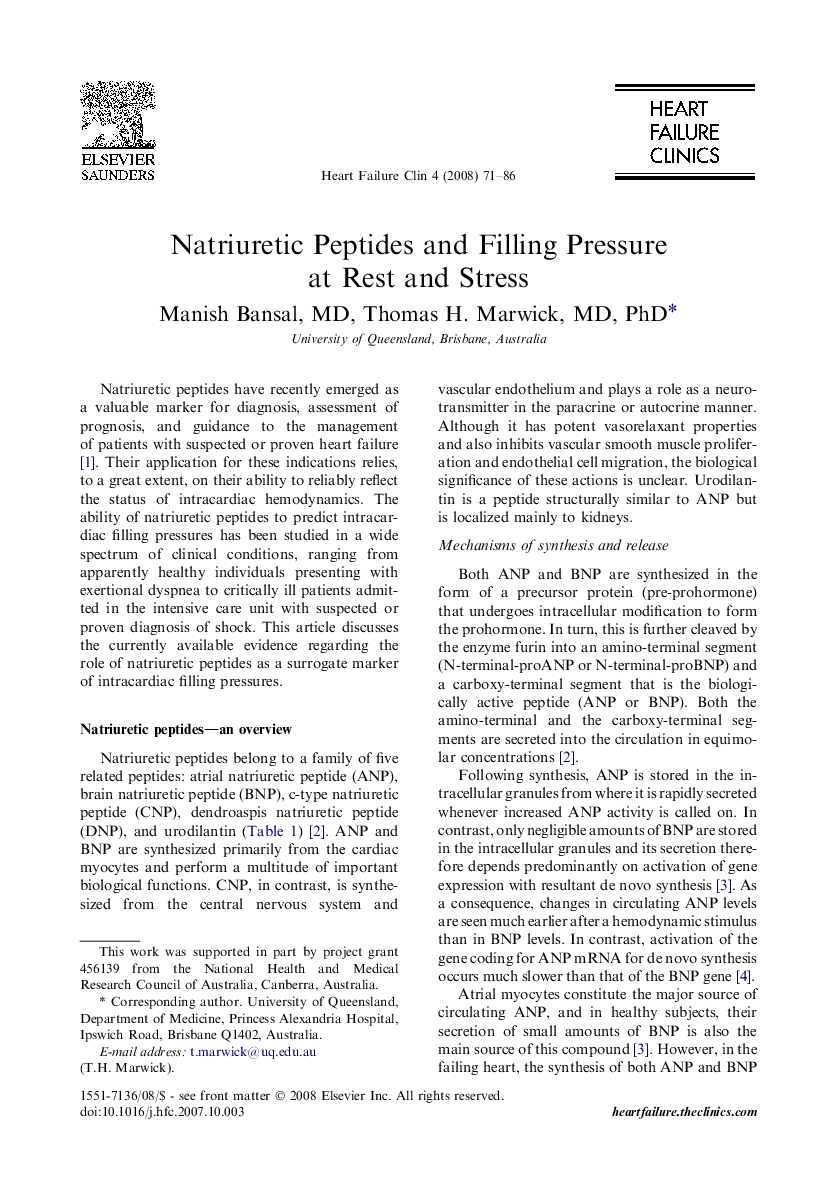| Article ID | Journal | Published Year | Pages | File Type |
|---|---|---|---|---|
| 3473890 | Heart Failure Clinics | 2008 | 16 Pages |
Abstract
The natriuretic peptides are a family of compounds secreted from the atria and ventricles in response to a variety of stimuli, including increased wall stress, tachycardia, and myocardial ischemia. Increases in the levels of these compounds correlate with increased left-ventricular filling pressure in patients with systolic dysfunction, although the production of the compounds from severely impaired ventricles may be reduced, leading to lower than anticipated levels in severe heart failure. The association of increased natriuretic peptides with diastolic dysfunction has been variable, with no elevation reported in many patients with mild dysfunction. These patients with mild diastolic dysfunction become symptomatic with exercise, in association with increased filling pressure with stress, which may be documented using echocardiography or possibly the natriuretic peptide response. However, the variability of peptide levels within individuals may pose a problem to the interpretation of sequential data in response to exercise or therapies.
Related Topics
Health Sciences
Medicine and Dentistry
Medicine and Dentistry (General)
Authors
Manish MD, Thomas H. MD, PhD,
